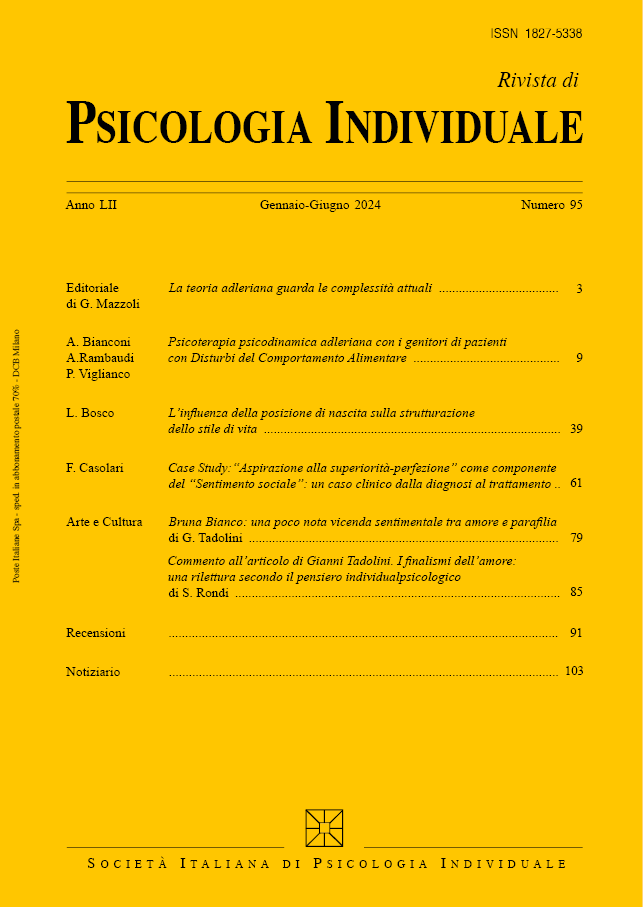A study of a group of young people from a suburb of Genoa who are subject to measures imposed by the Juvenile Court
Keywords:
school dropout, alcoholism, antisocial behaviour, social education, large families, separated parents, hierarchies in groups of minors, immigration, encouragement from institutions, medical-psychological-social questionnaires, sibling rivalry, desire for power among healthcare professionalsAbstract
A group of psychologists and psychiatrists examined the files relating to the years 1977-1980 of the Juvenile Court of Genoa, which sponsored the research. To this end, a questionnaire with 26 questions was prepared to explore the personal and family history of the subjects from a psychological, sociological, and medical point of view. The results showed an 80% incidence of psychiatric disorders in families, 86% of which were large and made up of immigrants. Parents were separated in 22% of cases and, in any case, in 91% of cases were unable to provide adequate education. School dropout rates were 72% among minors who, in group dynamics, were leaders in 58% of cases and followers in 41%. Although factors such as alcoholism and sibling rivalry were not taken into account, significant data emerged for the Juvenile Court, which does not want to play an inquisitorial or persecutory role, but rather one of support and protection. The survey was, however, accepted with unease by local health workers, who could have benefited from the adoption of the questionnaire, which would not have called into question their considerable power, since it is they whom the judge relies on to take his decisions






